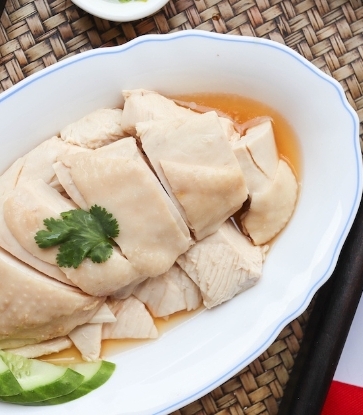“What most people understand of Indian food is very superficial and primitive. I think because what we export as ‘Indian food’ is just curries and naan bread, and that’s what people think it really is.” — Garima Arora
The misconception of Indian food was a key reason for Food Forward India, Chef Garima Arora’s latest project, which aims to put Indian cuisine in the spotlight. In a world where chefs have become superstars, often with the big personalities and glamourous endorsements to match, Arora seems to march to her own beat. Instead of taking her newly-found celebrity status in a more commercial direction, she has instead, chosen to look back at her roots with a not-for-profit initiative.
Sitting down with the MICHELIN Guide, the 33-year-old explains, “Ever since we won the MICHELIN Star in the last year and a half, people asked me if I would do a four-hands dinner in India, a pop up or a new restaurant. I guess it was really big news for me to be the first Indian woman to win. I just thought instead of that, I would like to bring attention to a cause that I believe in strongly. I think it would be a better way of making something in India. So that’s how Food Forward India came about.”

Indian cuisine, while popular worldwide, seems to suffer from the stigma of ‘comfort food’, as it struggles to reach fine dining standards. Food Forward India’s goal is to re-examine, re-evaluate and eventually reintroduce Indian cuisine to the world. To achieve such an imposing task, Arora has an equally strategic plan, and it all starts with gathering some of the subcontinent’s greatest culinary minds.
This includes chefs like Thomas Zacharias (The Bombay Canteen), Prateek Sadhu (Masque), and Vanika Choudhary (Sequel Bistro). As well as industry spearheads like food critic, author and culinary personality Rashmi Uday Singh; Computational Gastronomy pioneer, Associate Professor Dr. Ganesh Bagler (IIIT‐Delhi), pastry queen and Instagram sensation, Pooja Dhingra; Vogue India’s Food Editor, Sonal Ved; Food Writer Anoothi Vishal; and Food Anthropologist and Culinary Expert, Kurush Dalal, all of whom have signed on as panelists and speakers for the inaugural event.
“We want to hear out what the chefs in India, food historians, food scientists, culinary professors, and students think. Before we set a narrative, it’s very important to select a narrative and hopefully we all can brainstorm together on what the next step should be,” says Arora.

But the initiative goes far beyond being a brainstorming session—albeit one with some of India’s best culinary brains—to Arora, it is the start of our generation’s legacy for the future.
“That’s the only logical step for a cuisine that is steeped in history,” Arora’s naturally calm voice becomes impassioned when it comes to India’s culinary history. “It’s thousands of years old. So, the next step is to catalog it and scientifically break it down. Similar to how it is in the west where the neo-Nordic food movement is based in traditional French techniques because [Auguste Escoffier] sat down and categorically listed all the recipes. Today, if a chef wants their egg whites to rise a certain way, they would look at Escoffier’s recipes. It’s the same. Indian food is as old or older than French cuisine, but the fact that it has not been cataloged is probably why it is not widely available for chefs to use.”

Aside from cataloging, there are even more plans for the initiative. There are future hopes of inviting government officials and policy-makers who could drive the movement further. In addition, the second chapter to be held in New Delhi with a more international presence is also in the works.
While this may all seem like an undertaking that could take several decades, Arora humbly sums up why it’s important to keep pushing. “We are a little speck in time, and this is how our generation will contribute to Indian cuisine. Hopefully, we are able to come up with a sensible setup of how we want to leave our work for the next generation. At the end of the day, it’s just that.”
The first chapter of Food Forward India will be held on October 17, 2019 at Soho House in Mumbai. There is no entrance fee, but getting a seat is a selective process. Those interested in attending the inaugural event in Mumbai may apply at: https://forms.gle/WRwRUJVDRHng24aKA or contact info@foodforward.in. More information can be found at www.foodforward.in.











